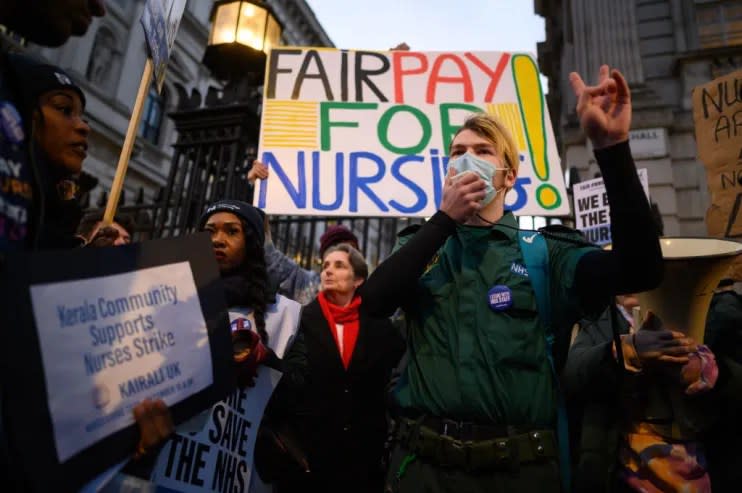Labour could face £7bn bill to keep public sector unions onside: leading think tank

Labour would need to find roughly £7bn to fund pay deals due immediately after the general election, a think tank has warned, as unions demand public sector pay return to its pre-austerity value.
Research from the Institute for Fiscal Studies (IFS) estimated Labour would face a bill of at least £6bn to £7bn if it wanted to prevent public sector workers, like nurses and teachers, falling further behind their private sector counterparts.
Such a bill would test Labour’s relationship with unions demanding more pay deals beyond those already agreed in response to strike action. The party is widely expected to achieve a majority on 4 July, according to polls.
Average wages have grown at a similar pace for both the public and private sector over the past year. But public sector pay is still lagging behind inflation and the private sector over the last 15 years.
Although shadow health secretary Wes Streeting has said junior doctors’ demands for a 35 per cent pay rise are “unaffordable”, he has promised to speak to medical unions. Labour also faces pay disputes among teachers, NHS staff, police, the armed forces, prison guards and senior civil servants.
Bee Boileau, research economist at the IFS, told the Financial Times that departmental budgets had allowed for around three per cent annual pay growth across the public sector when they were last set in 2021.
Although that could leave room for real-terms pay rises if inflation remains close to two per cent, the Bank of England expects private sector pay awards to average 5.5 per cent in 2024.
Boileau said that to match this benchmark, the government would need to spend an extra £6bn to £7bn on pay this year, with a bigger shortfall possible as some departments have already raided their budgets to cover pay deals last year.
“I really don’t want to be balloting for strike action… but the new government needs to recognise the scale of the crisis,” said Daniel Kebede, general secretary of the National Education Union. He has called for a pledge to restore teachers’ pay to its real-terms 2010 level.
Kebede said the current funding envelope for English schools allowed for pay awards of between just one and two per cent, which he called “highly problematic” for recruiting subject specialists.
The news comes after Sharon Graham, leader of the Unite trade union, told Sky News on Sunday that she did not agree with Labour’s fiscal rules and the party should borrow more to invest.
“These people that are out there in communities and workers, they are literally hurting beyond anything you could comprehend and what we need is the strait-jacket off a little bit, get some wiggle room there,” she said.
“Borrowing to invest is not the same as other borrowing. It’s borrowing to invest. It’s part of our balance sheet. Let’s get that done and if you don’t do that, we’ll be waiting too long.”

 Yahoo Finance
Yahoo Finance 